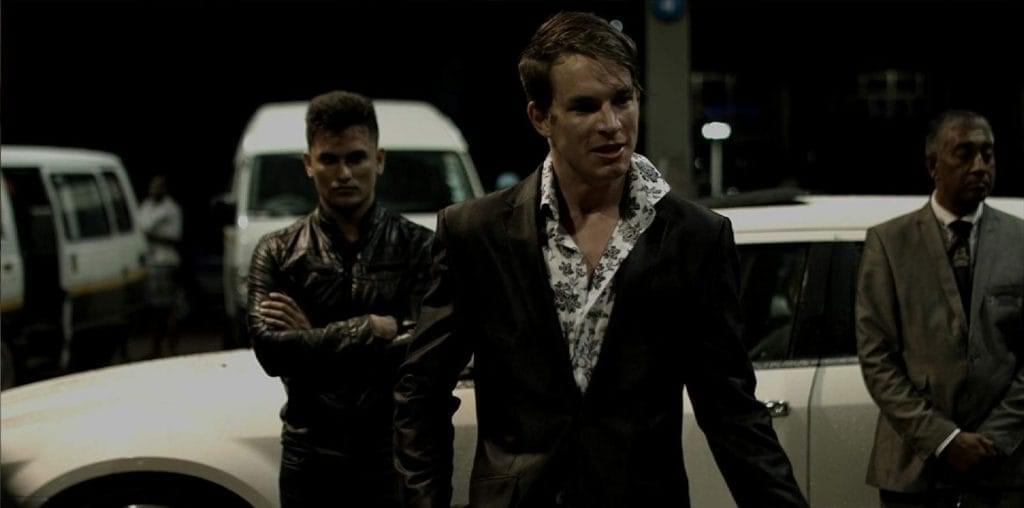
The Grove—an eccentric little coffee house in the Marina district of San Francisco—is known for its quirky food, its java served in outrageously oversized cups, the hot tea delivered in square-shaped, teakettles made of iron, the big round tables in the center of the room that are just perfect for socializing with total strangers, and the chalkboard menu that, in a note off to the side, invites patrons to borrow from the cafés stash of etch-a-sketches.
“Warren Schmidt wouldn’t
Schmidt is the title character in Alexander Payne’s amazing new film About Schmidt, starring Jack Nicholson as a recently-retired widower from Omaha, Nebraska, who may be the
“Schmidt,” I suggest, “is obviously not the adventurous type.”
“The very fact that he was setting out at all was such a
One could say that. All afternoon, Friedman has been scanning the scene for signs of eccentricity. At one point, she pounces on a stray newspaper featuring a story about people who sell “religious sex toys.” Whoever those people are, they may end up in the next edition of
Warren Schmidt, one assumes—were he ever to bump into Friedman along his way—would be nothing short of mystified. It’s no surprise that he lives in Omaha, a state so lacking in eccentricity—aside, perhaps, from Stonehenge, a replica of Britain’s famous monument, here made entirely of old cars—that Friedman had to search long and hard for something that was strange enough to put in the book. Nebraska, evidently, is very much a Warren Schmidt kind of place. “For Schmidt,” Friedman says, “that boring little trip from Omaha to Denver, those few days with those trashy people, that was probably the most extreme thing he was ever going to experience.
“And those in-laws were fairly middle-of-the-road eccentrics, as eccentrics go,” she adds. “But they were
“Schmidt was less taken aback by Kathy Bates owning a hot tub,” I remark, “then he was by her willingness to strip naked and hop into the tub alongside him.” I’m referring to one of the movie’s more memorable scenes: Kathy Bates, buck naked in a hot tub, coming onto Jack Nicholson’s Schmidt, who is terrified out of his wits.
“To Schmidt, that was as bizarre as if a Martian had landed beside him and taken him in for a physical exam,” Friedman laughs. “Eccentricity is completely relative to what your own experience is.”
According to statistics Friedman quotes in the book, one out of every ten thousand people is a genuine eccentric, with eccentricity being defined as simply “behavior that varies widely from the norm.” While there are eccentrics in all cultures, it’s only in Western cultures, generally, that we feel the freedom to express that eccentricity. “You’re not going to find any guidebooks to
That said, Friedman adds, “Different places spawn different kinds of weirdos. The eccentrics of Southern California are very different from the eccentrics of Northern California, where we take our eccentricities
“One thing about Schmidt’s in-laws,” I point out, as a nose-ringed gentlemen in a business suit walks past our table with a glass of milk and an etch-a-sketch, “eccentric or not, trashy or not, those people were a hell of a lot happier than Schmidt was.”
“Eccentrics are essentially happy doing whatever they do,” she replies. “That’s one unusual characteristic of 99 percent of the eccentrics in my book are happy people. They don’t need drugs. They are not neurotic. They are not alcoholics or drug abusers. Eccentrics see doctors far less often than non-eccentrics. Being eccentric is good for you.”
“Maybe what Schmidt needed,” I say, “was to become a bit of an eccentric himself.”
“What he needed was antidepressants,” Friedman counters, smiling. “Poor, sad Schmidt could never embrace a truly eccentric lifestyle. He just doesn’t have it in him.”
Visit Jan at the Eccentric America website.
____________________________________________________________
Writer David Templeton takes interesting people to the movies in his ongoing quest for the ultimate post-film conversation. This is not a review; rather, it’s a freewheeling, tangential discussion of art, alternative ideas, and popular culture.

